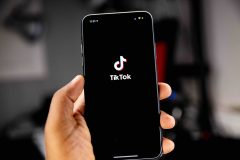While end users are eager to try out Google Buzz for themselves, many of the Web’s largest social properties have expressed a certain amount of fear, uncertainty and doubt about the search giant’s move into the social space.

A Facebook rep said that the company is interested to see how Google’s latest product will make the Web more social and more open, but the Facebook team has their concerns about whether Buzz’s friendship model is really all that functional. After a little bit of messing around with the new product today, we can understand their point of view.
ReadWriteWeb’s full coverage and analysis of Google Buzz:
“We’re supportive of technologies that help make the web more social and the world more open,” a Facebook rep wrote to us today, “and we’re interested to see how Google Buzz progresses over time.”
However, the Facebooker had words of warning about Buzz’s hazy friendship model.
To offer a brief explanation, Google has taken users’ Gmail inboxes and Google Talk IM contacts and programmatically tried to determine with whom users communicate most frequently. Users can share Buzz posts with the world (and Google search), or they can share privately through their existing Gmail groups or custom-made groups in Buzz. For more detail, take a look at this demo video:
Google Buzz seems to involve an asymmetric follower/friend model, but we’re not completely sure how friendships and shared posts will work. As our Facebooker wrote, “The continued growth of the social web will be determined by people and personal relationships. The people that you email and chat with the most may not be your closest friends or the people that you want to share and connect with.“
We can definitely understand this point of view. Some folks rarely use Gmail to communicate with their closest friends and family members because they see them in person or use other networks to get in touch. On the flip side of that coin, as more of us are using Gmail for work communication, it might be irrelevant or overly personal to follow and share with professional contacts.
All in all, one of our biggest concerns about Buzz adoption (being able to play nicely with existing social apps) carries over into this part of the conversation, as well: In addition to creating “best guesses” for who to friend and follow using Gmail & Google Talk, why doesn’t Google simply use Twitter OAuth and Facebook Connect to import existing friendships?
What do you think? Will Google Buzz’s friendship model work? Or does Facebook have a point about having carefully user-approved friendships online?










